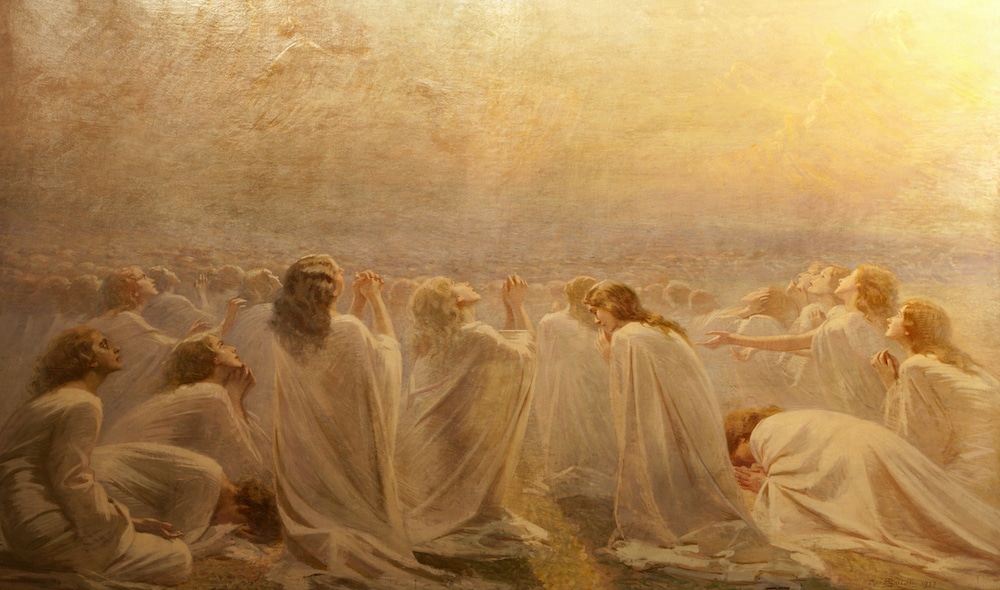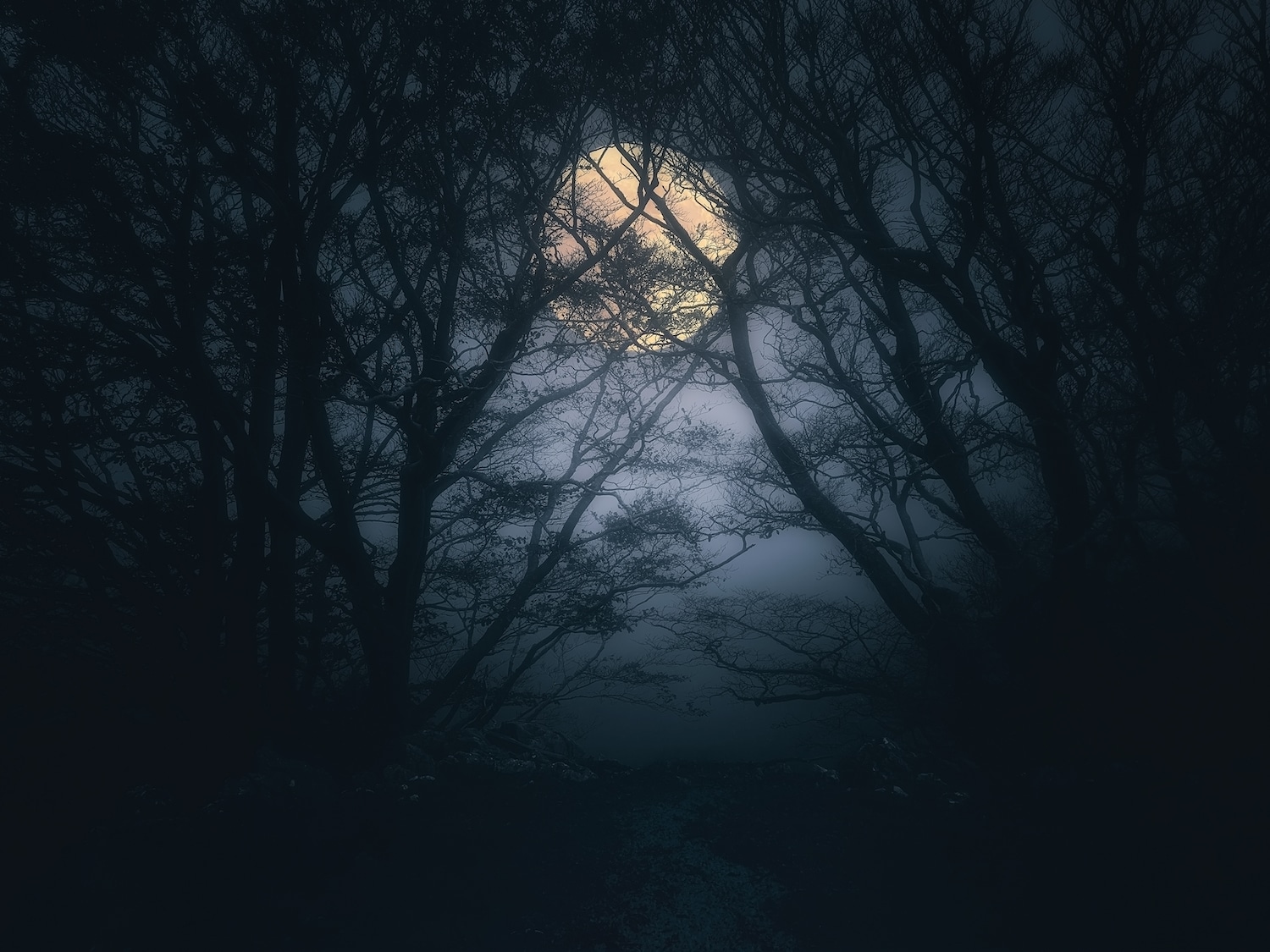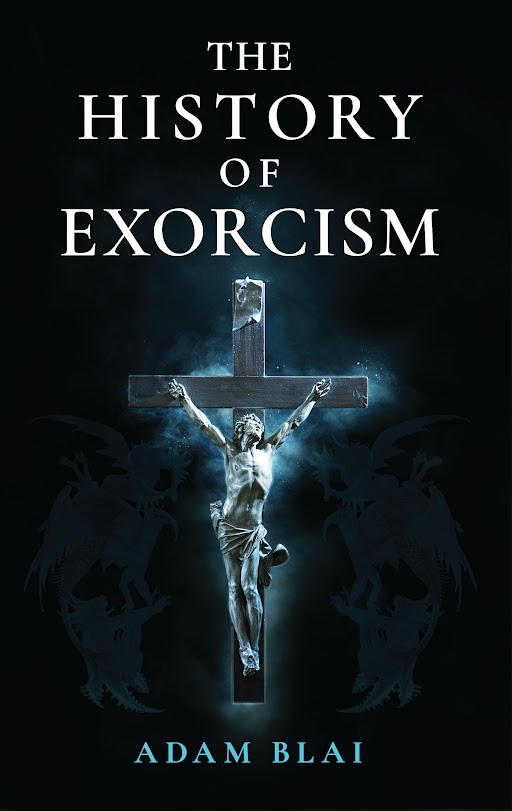A Church-decreed expert on religious demonology and exorcism is sharing how everyday Catholics should approach the topic of the paranormal around Halloween — a time when there is a cultural emphasis on hauntings and exorcisms.
“Halloween should be focused on our Catholic understanding of ‘All Hallows Eve,'” Adam Blai, a psychological expert for the Diocese of Pittsburgh, told Our Sunday Visitor describing Oct. 31. “Hallow means holy: the saints. It is about the evening before All Saints’ Day.”
All Saints’ Day or the Solemnity of All Saints, a holy day of obligation that falls on Nov. 1, celebrates all holy men and women now united with God in heaven.
Blai added: “We should never seek out the dead in paranormal investigating (one will only get demons pretending to be the dead), play with spirit communication such as Ouija boards, or engage in black magic.”
He went on to describe the difference between souls, spirits, ghosts and demons, and shared what Catholics should know about them.
Blai, who has written several books on the topic, most recently “The History of Exorcism,” trains priests nationally in exorcism, performs psychological evaluations to help evaluate cases, investigates claims of paranormal activity, and speaks publicly about the dangers of paranormal investigating, among other things.

What are souls?
Blain began by defining souls.
“Experience has, of course, borne out what the Church teaches on spirits,” he said. “When we die, we are immediately with Jesus and experience our particular judgment.”
From there, he said, souls go to one of the three places: heaven, purgatory, or hell.
“If we go to heaven, we are a saint and enjoy being in the presence of God forever,” he explained. “If we go to purgatory, that just means we still have some attachment to sin that needs to be healed before we can be directly with God. If we are sent to hell, it means we chose to reject God to the end and left God no other choice but to honor our choice.”
He added: “There is no such thing as a soul that is lost, wandering or unjudged.”
Blai shared the actions that souls in heaven can take. These souls, or saints, can pray for us to God, he said, and would never draw anyone into sin.
“They would never have the inclination to do so,” he stressed. “They see God; they understand more of God and his ways than we do.”
He shared other actions that souls in heaven will not take.
“A saint is not going to respond to spirit communication (ghost hunting), divination (Ouija boards, divining rods, pendulums, etc.), and they are not going to communicate through a medium or psychic,” he said. “All of these things are violations of the First Commandment (putting a created spirit before God in our life).”
Blai also noted the status of the souls in purgatory, who, he said, know they are on their way to heaven.
“In rare cases, God allows them to appear to the living (usually a priest, religious, or someone who knows how to pray for them),” he said. “When this happens, they do not draw us into conversation or relationship. They only communicate a need for prayer to speed along their process of purification.”
Like the souls in heaven, he said, they would never draw one into a violation of the First Commandment.
“Anything that wants to communicate beyond a need for prayer (like giving information about the afterlife, their personal history, their sins, when they died, etc.) is a demon pretending to be a ghost,” he cautioned.
As for souls in hell, they stay in hell, he said.
“Demons may pretend to be that person,” he warned, “but that soul is not interacting with any living person.”
What are spirits and ghosts?
Spirits, Blai said, are connected with souls.
“‘Spirit’ signifies that from creation man is ordered to a supernatural end and that his soul can gratuitously be raised beyond all it deserves to communion with God,” he said, citing the Catechism of the Catholic Church. “Soul and spirit are not separate things, but are closely related; there is not a duality in our spiritual natures.”
He described “ghost” as a term used in everyday language.
“When a person says ‘ghost’ they usually mean the soul of a dead person that is not at rest,” he said. “This is close to the reality of souls in purgatory making a petition to the living for prayer.”
“Sometimes they mean a lost and wandering soul (which does not exist),” he added. “When people are ghost hunting they are not encountering ghosts in any of these senses, they are encountering demons that are happy to pretend to be ghosts in order to draw us into relationship with them.”

What are demons?
Blai defined demons as fallen angels.
“They are not bad people who went to hell and became demons, that does not exist (and good people do not become angels),” he said. “Demons do not want to repent, and cannot, as their choice to rebel was made with full understanding to the end of time of the consequences.”
Demons, he said, had infused knowledge from God when they were created and do not learn new things or have new insights.
“They only want to deceive us, draw us into relationship, dominate us, and separate us from God,” he urged. “They are never our friends or allies. They only pretend to be so until we have ceded our will to them.”
A new book
Blai has written in-depth about these topics before. In his most recent book, “The History of Exorcism,” he details the history of exorcism, from before Jesus, during his time on earth, and up until now.
“The story is fascinating and gives the reader an understanding of where the rite they see in the movies came from, why those words are used, and why it is done that way,” he said of his book published in August. “Exorcism is a universal phenomenon in all major religions, and all major religions have their own label for demons.”
He highlighted two important differences with the Catholic Church when it comes to exorcism.
“First, we have a well-developed rite of exorcism built on centuries of experience,” he said. “Second, we have the authority Christ gave his Church, and the bishops in particular.”
“There is a reason most religions and Christian denominations send the serious full-blown cases to the Catholic Church,” he said, adding that exorcisms can only be done by priests with permission from their bishop.


